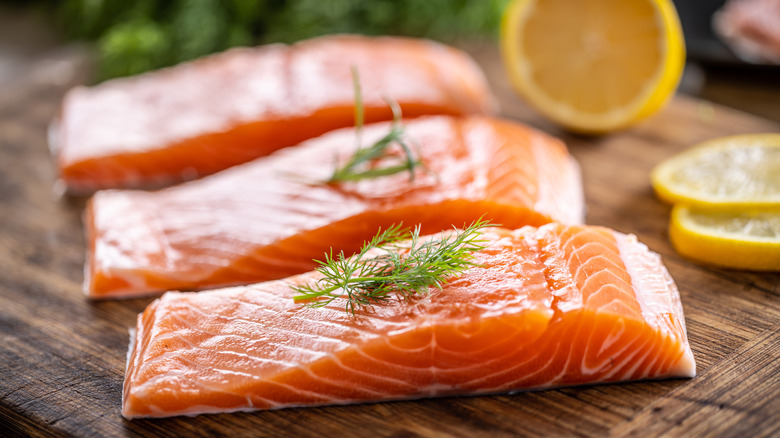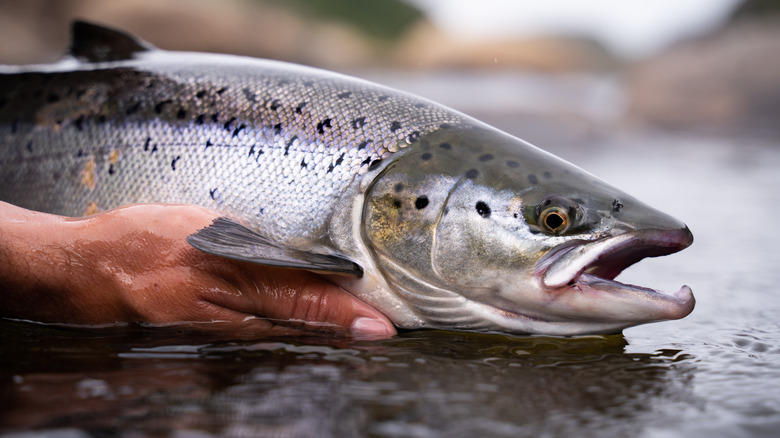Is Aldi's Salmon Wild-Caught Or Farm-Raised?
When I finally decided to do some grocery shopping at Aldi, I did it slowly –- a few snacks, a box of cereal, and some milk. I was skeptical about the European-based grocery chain. In my mind, low prices (especially the rock-bottom ones I witnessed) could only mean low quality. That stereotype was quickly proven wrong, so I got a little bolder, buying some produce, butter, and cheese. When those checked out with flying colors, I went on to try Aldi's meat and salmon. It was the salmon that hooked me (no pun intended). It was fresh, flavorful, and so darn affordable. I'm certainly not the only one who feels this way, but is the salmon at Aldi wild-caught or farm-raised?
The truth is, you can find both kinds at Aldi. The company sells value-pack packages of frozen wild-caught pink salmon filets (which make delicious baked salmon with burst tomatoes) along with cans of wild Alaskan pink salmon (which is one canned meat you should be eating). However, much of the chain's fresh salmon is farm-raised. If you're ever in doubt, look on the label or packaging for the words "wild" or "wild-caught." If you don't see them, it's farmed fish. Overall, wild-caught salmon is considered more desirable and is, therefore, more expensive than its farmed counterpart, but both are considered nutritious and a great protein choice.
Farm-raised versus wild-caught salmon: Is one better than the other?
First, let's break down what farmed and wild salmon actually are. Wild-caught salmon is pretty much exactly what it sounds like: It's caught in its natural habitat (which can include oceans, rivers, lakes, or streams) through various means, such as fishing poles or nets. Farmed salmon are kept in enclosures where they are regulated, fed, and raised by salmon farmers — from egg until harvest.
A lot of farmed salmon is administered antibiotics to prevent disease from spreading through the colony and when you consume this type of fish, you may be ingesting trace amounts of the antibiotics as well. Farmed salmon also tends to be bigger because they are fed regularly, unlike wild salmon which forage for their own food. With this in mind, farmed salmon also contain more fat, which is a result of both their regular feeding and less exercise since they are kept in confined areas.
While both farmed and wild salmon contain some pollutants from their food or the water, wild salmon do tend to have higher levels of mercury. It's worth noting, though, that the mercury levels are on the lower end compared to things like mackerel and swordfish. Fortunately, Aldi is committed to responsible seafood sourcing, whether that pertains to the wild fisheries or the salmon farmers they work with.

